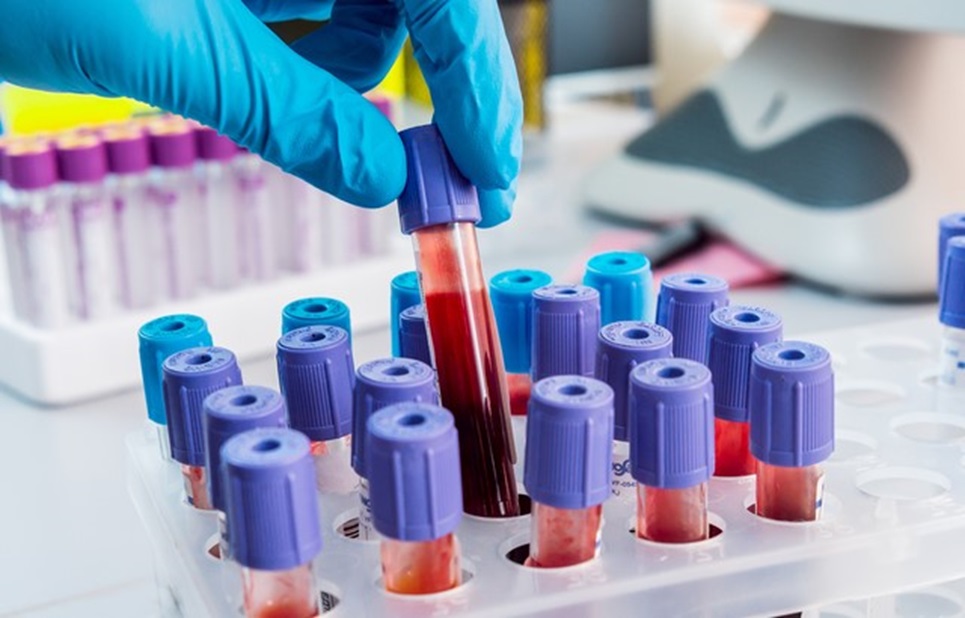

Each discovery we fund helps take us a step closer to beating heartbreak forever. Here we take a look back at some of our research breakthroughs of 2024.

January: Diet in childhood linked to blood vessel damage in teenage years
We kicked off 2024 with research highlighting the importance of balanced eating habits throughout our life to protect heart health. Researchers found that children whose diets were high in calories, fat and sugar had stiffer, less elastic arteries aged 17 – an important sign of blood vessel damage that is linked to increased risk of heart attacks and strokes.Mediterranean and anti-inflammatory eating patterns appeared to be more protective for heart health, and children whose diets followed this pattern had more elastic and less stiff arteries at 17.
February: Research reveals certain personality traits linked to higher risk of heart attack and stroke
February gave us a first-of-its-kind investigation, suggesting that certain personality traits, such as anxiousness, mood swings and irritability, referred to in the research as neurotic traits, are linked to early signs of heart ageing. The findings suggest that people with these traits may benefit from extra support and monitoring to help reduce their risk of heart disease.The researchers found that having a higher neuroticism score was associated with changes to the heart, including it being smaller and thicker. These changes can cause the heart to pump less well and are typical of ‘older’ hearts, even when taking other influencing factors into consideration, such as age, weight and smoking.

March: New blood test could identify those at highest risk of heart failure
March brought hope that a simple blood test could help to identify those at highest risk of dying from heart failure. The study found that patients with highest levels of a protein called neuropeptide Y (NPY) were 50 per cent more likely to die from a heart complication over the three years that the research was conducted, compared to those with lower levels.The researchers behind the study suggest that measuring NPY could pinpoint those who may be at higher risk of dying from heart failure at an earlier stage. Identifying those at greatest risk early on could help healthcare professionals decide the best course of treatment for their patients, and identify those who may benefit from having a potentially lifesaving implantable cardioverter defibrillator (ICD) fitted.
April: New cheek swab test helping to prevent sudden cardiac deaths in children
A cheek swab test opened a much-needed window into the heart in April. This cheap and simple test allows quick and safe monitoring in children with potentially deadly arrhythmogenic cardiomyopathy (ACM), a heart condition estimated to be responsible for up to 25 per cent of sudden cardiac deaths in children.The test takes advantage of a biological phenomenon where changes in the distribution of proteins within heart cells of a patient with ACM are mirrored in the cells inside their cheeks. This can help doctors to spot when patients are going through a ‘hot phase’ – where the protein changes are linked to dangerous bouts of inflammation in the heart, putting patients at highest risk of dangerous heart rhythms.
If proven effective, the test could soon be used to guide treatment nationwide, allowing doctors to quickly act to prevent sudden cardiac deaths.
May: BHF awards £35 million funding to top UK universities
In May, we announced a record £35 million of funding benefitting nine leading universities that will help strengthen world-leading cardiovascular disease research in the UK. The funding, through our Research Excellence Awards scheme, will support the universities to cultivate world-class research environments that encourage collaboration, inclusion and innovation, and enable visionary scientists to drive lifesaving breakthroughs.The nine universities, which will each receive between £1 million and £5 million over the next five years, are: Imperial College London, King’s College London, University of Cambridge, University of Edinburgh, University of Leeds, University of Leicester, University of Manchester, University of Oxford and University College London.

June: New AI tool uses GP records to identify those most likely to develop heart failure
Science fiction became reality in June with news that an artificial intelligence (AI) tool could help to improve early diagnosis of heart failure. This would help people with heart failure begin treatments earlier, when symptoms can be managed more effectively and progress slowed.The algorithm, called Future Innovations in Novel Detection of Heart Failure (FIND-HF) was trained to recognise the early symptoms most likely to lead to a heart failure diagnosis from patient’s GP health records.
Researchers hope that the algorithm could be available for GPs to identify those at most risk with a simple push of a button in as little as three to five years.
July: AI reduces underdiagnosis of common heart failure in Black patients
In July we took a step towards reducing healthcare inequalities as a study revealed that Black patients are less likely to be underdiagnosed with a common type of heart failure when using AI than during routine care. Researchers used an AI algorithm called Natural Language Processing (NLP), that can read and understand medical text and analyse electronic medical records.It identified nearly 1,973 heart failure patients. Of these 64 per cent were White, 29 per cent were Black and 7 per cent were Asian. The Black and Asian patients were less likely to be underdiagnosed using the AI than during routine care. The team said more research should be done to assess how AI can be used to make diagnosis more accurate.

August: Leicestershire man was 100th recruit in landmark heart failure clinical trial
A groundbreaking clinical trial to improve treatment for people with heart failure found its 100th participant in the summer. Peter Dyde, 68, a retired businessman from Hinckley had an implantable cardioverter defibrillator (ICD) fitted, which will monitor his heart rhythm to potentially stop a cardiac arrest if needed.The researchers believe that current guidelines may mean that people are being fitted with an ICD who will never need it. The trial will determine whether the amount of scarring in the heart should be used to guide which heart failure patients get an ICD. Researchers are monitoring patients with and without ICDs for three years to see whether having the procedure improves survival rates.
September: Anti-inflammatory drug could reduce future heart attack risk
September saw the European Society of Cardiology Congress come to London, where we revealed that a cancer drug that unlocks the anti-inflammatory power of the immune system could help to reduce the risk of future heart attacks. Inflammation is known to have a role in many heart problems, including heart attacks.Researchers found that low doses of a drug used to treat kidney cancer, injected under the skin of patients after a heart attack, significantly reduces inflammation in arteries. They are currently following up patients to investigate the longer-term impact of this fall in inflammation.
October: Stroke patients could benefit from earlier blood thinning treatment
The OPTIMAS study, funded by us, found that giving blood thinning treatments in the first few days after a stroke – rather than delaying treatment – is safe and effective for patients, even for those who had a more severe stroke.These treatments, taken to reduce the risk of another stroke, come with the rare but dangerous side effect of bleeding into the brain, and there is a lack of evidence about when is best to start taking them after a stroke. But OPTIMAS found that early treatment within four days of a stroke was effective and did not increase the risk of a bleed into the brain. The team believes that their findings should lead to a rapid change in clinical practice.

November: AI could predict type 2 diabetes up to 10 years in advance
Another pioneering AI tool made the headlines in November. Researchers developed the tool to analyse ECG readings during routine heart scans, finding it could identify people at risk of type 2 diabetes as much as ten years before they begin to develop the condition. The AI was developed using around 1.2 million ECGs from hospital records, and accurately predicted future diabetes risk in people of various ages, genders, ethnicities and socioeconomic backgrounds about 70 per cent of the time.When the team incorporated the AI predictions with genetic and clinical information, such as age and blood pressure, it improved the accuracy even further. The NHS in England is planning to trial the tool at a number of Trusts in 2025.
December: First-of-its-kind algorithm helping to identify hidden heart condition
To end the year, we had news that nearly 2,000 people have taken part in a groundbreaking trial we're funding that aims to help doctors identify more people at risk of developing atrial fibrillation (AF). The trial is investigating an algorithm called FIND-AF – which was developed using machine learning – that looks for red flags in people’s GP records that suggest they’re at risk of developing AF in the next six months.
People identified by the algorithm are then offered further testing to confirm a diagnosis of AF. The team hope the West Yorkshire pilot will lay the groundwork for a UK-wide trial that could one day improve early diagnosis of AF and prevent more avoidable strokes.


